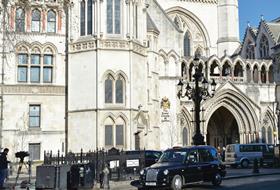The Court of Appeal has upheld a costs order against a solicitor who engaged in ‘unduly aggressive’ correspondence with a widowed mother of 10.
Brian Bowser had repeatedly written to Julie Smith calling on her to step aside as one of the two original executors of the will of her late husband Ian. She had resisted this, offering to remove herself only if Bowser similarly stepped down as joint executor. The matter ended up in court, with Bowser making an application for interim relief, before the parties produced a draft order agreeing to them both being removed.
Julie Smith then sought her costs from Bowser and applied for an order that he not be entitled to recover his costs from the estate, arguing that the litigation had been ‘completely unnecessary and improperly pursued’.
Mrs Justice Bacon made the costs order, concluding that Bowser’s conduct in bringing and pursuing the proceedings was not a reasonable and proper exercise of his powers as a personal representative.
Dismissing his appeal in Bowser v Smith & Anor, Sir Launcelot Henderson said the judge had been ‘fully entitled’ to make such a finding, noting that Bowser’s actions in seeking the urgent removal of Julie Smith as executor were started ‘with inappropriate haste, without any serious attempt being made to establish a productive working relationship with her, without waiting until she had obtained legal representation, and without even writing a proper letter before action’.
Lord Justice Henderson added: ‘In a case such as this, involving a relatively modest estate, the proper discharge of a personal representative’s duties requires that hostile court proceedings should be a last resort.’

Cambridgeshire livestock farmer Ian Smith had unexpectedly died in May 2022 and left an estate valued at around £805,000. He had been estranged from his wife Julie, the mother of their 10 children, at the time of his death. The will appointed Julie as executor despite making no beneficial provision for her.
Within a week of Ian’s death, Bowser, a director of Cambridgeshire firm Bowser Ollard & Bentley Limited, wrote to Julie setting out the position regarding the will and funeral arrangements.
Henderson noted that this kind of letter was to be expected but that this ‘reasonable and cooperative approach… was not to be maintained’.
Bowser wrote again three weeks later suggesting there was a clear conflict of interest in Julie’s role as executor and as a potential claimant against the estate. Henderson said this was ‘simply wrong’, and he also criticised Bowser for having said to Julie that she was ‘intermeddling’ in the estate, asserting that this would carry a connotation of improper conduct to a lay person.
It was ‘premature and insensitive’ for Bowser to give instructions for the funeral contrary to Julie’s wishes and ‘inappropriate’ to threaten her with an application to the court to remove her as an executor.
Appealing the costs decision, Bowser said the judge had been wrong in fact and law to find his conduct was not reasonable, and wrong to categorise any of his acts as misconduct.
Henderson found no error of law or principle in the way the judge used her discretion on costs and found no evidence of a manifest injustice to Bowser.



























9 Readers' comments